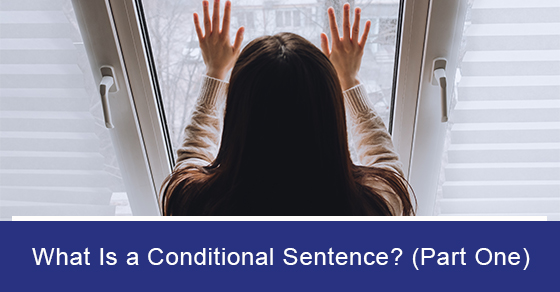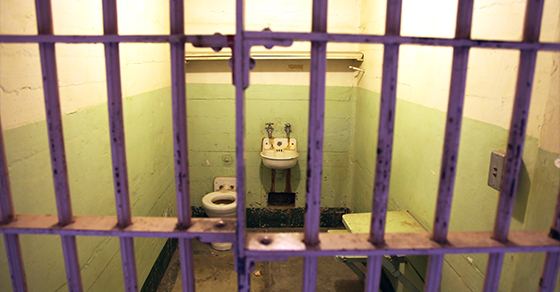What Is a Conditional Sentence? (Part One)

Blog by Arun S. Maini
What is a conditional sentence?
A conditional sentence is a jail sentence which is served not in jail, but at home, or, to use the more formal expression, “in the community”. Often it is referred to as a sentence of “house arrest”.
A conditional sentence is meant to be a punishment for committing a crime, just as jail sentence would be. But obviously, serving time at home rather than in the crowded, unsanitary and dangerous conditions of a prison is a lot more desirable.
Why would the government let some people do their jail time at home?
There are several reasons:
- It is much more expensive to keep someone in jail than to let them serve time at home;
- A conditional sentence is an additional tool in the criminal justice toolbox to permit cases to be resolved. Many individuals who have committed an offence might be willing to plead guilty if they know they won’t go to jail;
- Because a conditional sentence is still considered to be near the top rung of punishments, just under an actual prison sentence, it is a way for the court to condemn a person for a crime without imposing the most severe punishment;
- For some groups who are overrepresented in jails, such as black or aboriginal Canadians, conditional sentences can help to reduce the impact of incarceration on them and their families.
How long is a conditional sentence for?
The maximum length of a conditional sentence is two years minus a day. This represents the point at which a sentence goes from being administered by the province to one which is administered by the federal government. The feds have delegated the management of conditional sentences to the province. In other words, any jail sentence of less than two years is a provincial sentence; anything more than two years is a federal sentence.
There is no minimum length to a conditional sentence, but because they are complicated to manage, courts do not like to impose conditional sentences of less than three months.
Is there a disadvantage to a conditional sentence?
The upside is obvious. There are three downsides.
The first is that because serving time at home is so much more desirable than being incarcerated, the court will usually make the sentence longer than an actual jail sentence would be. So, for example, if a jail sentence would be six months, a conditional sentence served at home might be twelve months. Or an 18-month jail sentence could mean a two-year conditional sentence.
The second disadvantage is that unlike a real jail sentence, you have to serve the whole sentence. If you are sentenced to real jail, you will be released after a period of time. For a provincial sentence (i.e. less than two years), you will be released after serving two thirds of your sentence. For example, if you are sentenced to twelve months in jail, you will be released after nine months. If you are sentenced to 18 months, you will be released after 12. Federal sentences have a system of parole where after a portion of your term, you are gradually released into the community.
With a conditional sentence, you will have to serve the whole thing, it will not be cut short. However, there is the option to have your sentence split up into segments that gradually permit more freedom to leave your home. For example, a sentence could be divided into three parts: the first third would be house arrest; the second third could involve a curfew; and the third portion might not have any restrictions on leaving the house.
The third disadvantage of a conditional sentence is that if you violate its terms, you could end up serving the balance of the sentence in a real jail. And the law makes it easier to prove a breach of a conditional sentence: it is not the high threshold of “proof beyond a reasonable doubt”.
Who monitors the conditional sentence?
In other words, how will the government know if I am really at home?
A conditional sentence is monitored by a “supervisor”, who is a probation officer working for the provincial government. They will meet and discuss its terms with you, and they will check to make sure you are complying with it, for example by calling you on a landline at home, or asking the police to check up on you.
However, probation officers are not police officers. They are usually social workers, and they want to make sure that you succeed in completing your sentence without problems. Most clients develop a good working relationship with their supervisor/probation officer.
Can I work or go to school while serving a conditional sentence?
Yes, often you can leave home to go to work or attend school, which is one of the big advantages of a conditional sentence over a jail sentence. Whether you will be allowed to do this will be up to the court, and is often a term negotiated by your lawyer with the Crown attorney.
Can I shop for groceries while serving a conditional sentence?
Yes, but usually the time you are given to shop for essentials is limited to four hours a week, usually on the weekend, such as a Sunday afternoon from 1 to 5 pm. If you practise a religion, you will likely be given time to attend a house of worship once a week, perhaps in combination with the four hours for running errands.
How can I get a conditional sentence?
There are many pre-conditions to getting a conditional sentence. Talk to your lawyer to find out if a conditional sentence is available in your case. You might be eligible for a sentence that is even better, such as straight probation or even a discharge. But if you are looking at the possibility of a jail sentence, you will want to know if a conditional sentence might be available to you.
Arun S. Maini is a criminal lawyer and former prosecutor with 25 years of experience
If you or a loved one are facing criminal charges and need the advice of an experienced and skilled lawyer to help you through the legal process, call The Defence Group for a free consultation at 877-295-2830.


